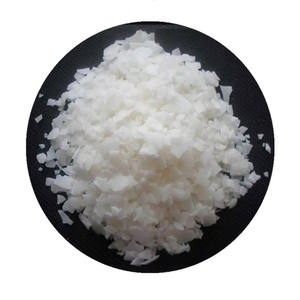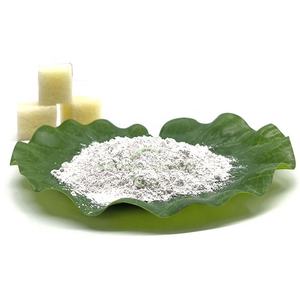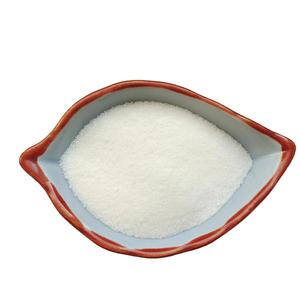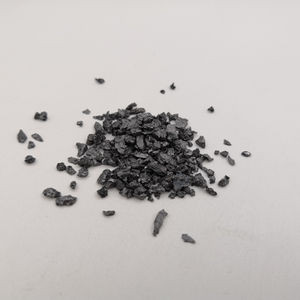Professional and high-quality metal alloys, ceramic products and concrete additives | RBOSCHCO
PRODUCT PARAMETERS
Description
| Alkylnaphthalene Sulfonate Sodium Salt Properties | |
| Other Names | N/A |
| CAS No. | N/A |
| Compound Formula | N/A |
| Molecular Weight | N/A |
| Appearance | NA |
| Melting Point | N/A |
| Boiling Point | N/A |
| Density | N/A |
| Solubility in H2O | N/A |
| Exact Mass | N/A |
| Alkylnaphthalene Sulfonate Sodium Salt Health & Safety Information | |
| Signal Word | N/A |
| Hazard Statements | N/A |
| Hazard Codes | N/A |
| Risk Codes | N/A |
| Safety Statements | N/A |
| Transport Information | N/A |
(Alkylnaphthalene Sulfonate Sodium Salt)
Overview of Alkylnaphthalene Sulfonate Sodium Salt
Alkylnaphthene Sulfonate Sodium Salt is a type of surfactant in the anionic surfactant category. It is obtained by the sulfonation reaction of alkyl naphthalene, which then reacts with sodium hydroxide to form a sodium salt. This compound has excellent wetting, emulsifying, dispersing, and solubilizing properties, making it widely used in various fields such as detergents, textiles, petroleum extraction, paints, inks, pesticides, and cosmetics.
Characteristic of Alkylnaphthalene Sulfonate Sodium Salt
1. Good surfactant performance: Sodium alkyl naphthalene sulfonate is an anionic surfactant with good wetting, emulsifying, dispersing, and solubilizing properties. It can form micelles in aqueous solutions, effectively reducing surface tension and improving interface properties between liquids and solids, as well as liquids and gases.
2. Excellent chemical stability: This compound exhibits good stability under heat, acid, and alkali conditions and can maintain performance over a wide pH range. It can maintain its surface activity in high temperatures or strong acidic and alkaline environments and is suitable for various chemical reactions and processes.
3. Good biodegradability: Sodium alkyl naphthalene sulfonate can decompose by natural microorganisms without long-term accumulation and causing environmental pollution. This makes it highly feasible in terms of environmental protection and ecology, in line with the requirements of sustainable development.
4. Safety and environmental protection: Sodium alkyl naphthalene sulfonate is generally considered a relatively safe chemical with minimal condition on human health and the environment. During use, as long as correct operation and safety regulations are followed, the safety of personnel and the environment can be ensured.
Application of Alkylnaphthalene Sulfonate Sodium Salt
1.Petroleum industry: As an additive in drilling mud, it helps to stabilize mud performance and improve drilling efficiency. Used as an oil displacement agent in oilfield development, it can improve crude oil recovery rate.

Alkylnaphthalene Sulfonate Sodium Salt is used in the petroleum industry
2.Textile printing and dyeing: Used as a printing and dyeing assistant for textiles, it can enhance the affinity of dyes, making colors more vibrant and uniform. In the post-finishing process of textiles, the fabric's texture, anti-static properties, and stain resistance can be improved.

Alkylnaphthalene Sulfonate Sodium Salt is used in textile printing and dyeing
3.Leather industry: As an auxiliary agent in the leather tanning process, it can promote the softness and fullness of leather. Helps improve the dyeing performance and coating adhesion of leather surfaces.

Alkylnaphthalene Sulfonate Sodium Salt is used in the leather industry
4.Daily chemical products: Used as a foaming and cleaning agent in personal care products such as shampoo and shower gel. As a cleaning agent in detergents, it enhances the washing effect.

Alkylnaphthalene Sulfonate Sodium Salt is used in daily chemical products
5.Coating industry: Used as an emulsifier in coatings, it can help disperse pigments and improve the stability of coatings. Improve the wetting and leveling properties of coatings to make them smoother and more uniform.

Alkylnaphthalene Sulfonate Sodium Salt is used in the paint industry
6.Pesticide formulation: As a pesticide emulsifier, it can improve the dispersion and stability of pesticides. Enhance the adhesion and permeability of pesticides on plant leaves and improve their efficacy.

Alkylnaphthalene Sulfonate Sodium Salt used in pesticide formulations
7.Metal processing: Used as an emulsifier and rust inhibitor in metal cutting fluids. Improve the lubrication and corrosion resistance of metal surfaces.

Alkylnaphthalene Sulfonate Sodium Salt used in metal processing
8. Other industrial applications: As an emulsifier in the rubber industry, it promotes uniform mixing and vulcanization of rubber. Used as a pulp dispersant and paper coating additive in the papermaking industry. As a flocculant in water treatment, it helps to remove suspended solids and impurities from the water.

Company Profile
NANOTRUN(www.rboschco.com) is a trusted global chemical material supplier & manufacturer with over 12-year-experience in providing super high-quality chemicals and nanomaterials, including boride powder, nitride powder, graphite powder, sulfide powder, 3D printing powder, etc.The company has a professional technical department and Quality Supervision Department, a well-equipped laboratory, and equipped with advanced testing equipment and after-sales customer service center.If you are looking for high-quality Alkylnaphthalene Sulfonate Sodium Salt , please feel free to contact us or click on the needed products to send an inquiry.
Payment Term
L/C, T/T, Western Union, Paypal, Credit Card etc.

Shipment Term
By sea, by air, by express, as customers request.
Storage Conditions:
1. Temperature control: Sodium alkyl naphthalene sulfonate should be stored in a cool, ventilated, dry warehouse. Eschew direct sunlight and high temperatures to prevent product decomposition or deterioration. The ideal storage temperature is usually between 15 ° C and 30 ° C at room temperature.
2. Humidity control: Keep the relative humidity in the warehouse low to prevent product moisture absorption and clumping. The use of desiccants or dehumidifiers can effectively control humidity.
3. Isolation and separate storage: Sodium alkyl naphthalene sulfonate should be stored separately from other chemicals, especially those that may undergo chemical reactions. The storage area should have clear isolation signs to prevent confusion.
4. Packaging and containers: Use containers with good sealing performance to store sodium alkyl naphthalene sulfonate, ensuring that it does not leak or be contaminated by external factors. The container material should be compatible with the product and not react with it.
5. Fire and explosion prevention: Although sodium alkyl naphthalene sulfonate is not flammable, basic fire and explosion prevention measures should still be followed. The warehouse should have appropriate fire-fighting equipment and undergo regular fire safety inspections.
6. Regular inspection and maintenance: Regularly inspect the stored sodium alkyl naphthalene sulfonate to ensure it is in good condition and shows no deterioration or moisture. If abnormalities are found, immediate measures should be taken, and relevant personnel notified.
7. Inventory management and recording: Establish a comprehensive inventory management system to ensure that the first in, first out (FIFO) principle of products is followed. Record key parameters such as storage temperature and humidity, as well as the results of regular inspections, for future reference.
FAQ
Q1
What is the surface activity of sodium alkyl naphthalene sulfonate, and what are its unique features compared to other surfactants?
Re:Sodium alkyl naphthalene sulfonate has excellent surface active properties. Its molecular structure's hydrophobic and hydrophilic parts enable it to form an effective adsorption layer at the interface, thereby reducing surface tension. Compared with other common surfactants, the unique feature of sodium alkyl naphthalene sulfonate lies in its excellent wetting, emulsifying, dispersing, and solubilizing abilities. Especially under hard water conditions, its performance is more stable and less susceptible to the influence of water hardness. In addition, sodium alkyl naphthalene sulfonate has good chemical and thermal stability, allowing it to maintain efficient surface activity in various application scenarios.
Q2
What is the solubility and dispersibility of sodium alkyl naphthalene sulfonate, and is it easy to dissolve in water or other solvents?
Re:Sodium alkyl naphthalene sulfonate has good solubility and dispersibility, especially in aqueous media. The hydrophilic groups in its molecular structure make forming hydrogen bonds with water molecules easy, resulting in rapid dissolution. Meanwhile, its hydrophobic part can also be effectively dispersed in various organic solvents. This excellent solubility and dispersion performance makes sodium alkyl naphthalene sulfonate perform excellently in detergents, emulsifiers, and dispersants.
Q3
What is the chemical stability of sodium alkyl naphthalene sulfonate, and can it remain stable under different pH and temperature conditions?
Re:Sodium alkyl naphthalene sulfonate has high chemical stability and can maintain surface activity under different pH and temperature conditions. In acidic and alkaline environments, its molecular structure is not easily hydrolyzed or decomposed, exhibiting good stability. At the same time, under high-temperature conditions, sodium alkyl naphthalene sulfonate can also maintain its surface activity and is not easily deactivated. This allows it to play a good role in application scenarios under high temperature or extreme pH conditions.
Q4
What is the biodegradability of sodium alkyl naphthalene sulfonate, and is there a potential environmental risk?
Re:The biodegradability of sodium alkyl naphthalene sulfonate varies due to its molecular structure. Generally speaking, natural microorganisms can gradually decompose these compounds, but the decomposition rate may be slower. Therefore, long-term and extensive use may pose certain pollution risks to the water environment and soil. In addition, the intermediate products that may be produced during its biodegradation process also need to pay attention to their environmental impact.
Q5
Will using sodium alkyl naphthalene sulfonate produce harmful by-products or gases, and is it safe for human health and the environment?
Re:Using sodium alkyl naphthalene sulfonate usually does not produce harmful by-products or gases. However, decomposition reactions may occur under high temperatures or specific conditions, producing some low molecular weight compounds or gases. The safety and environmental impact of these compounds or gases requires specific assessment. In addition, it is recommended to follow the recommended dosage and process conditions during use to guarantee its safety for human health and the environment.








